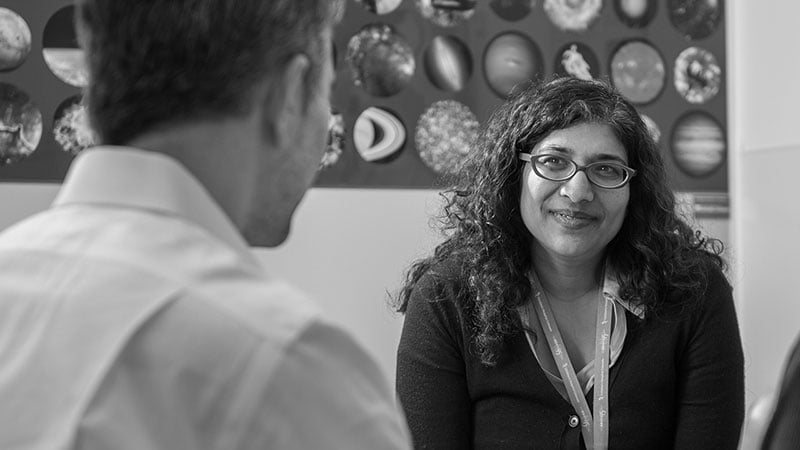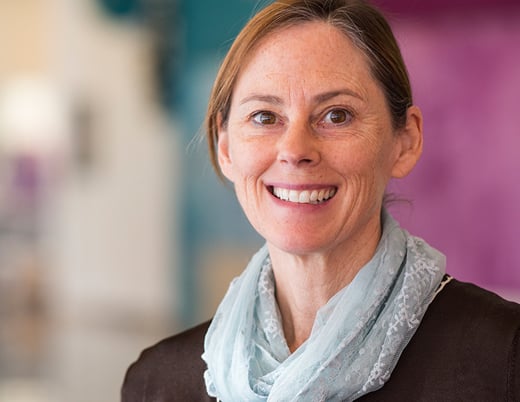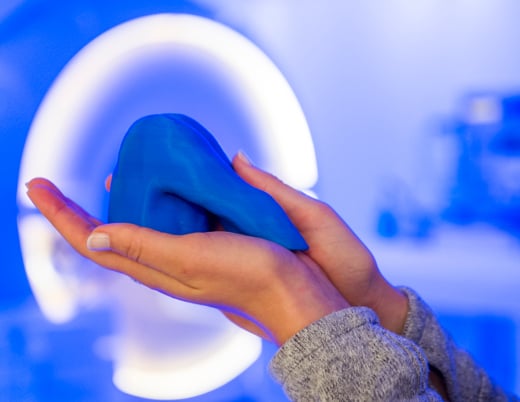How do you safely build standards of care for an emerging field of medicine?
Children’s Hospital Colorado has a robust fetal care center, transplant program and Congenital Anomalies of the Kidney and Urinary Tract (CAKUT) clinic. As such, it has steadily worked to build a comprehensive, multidisciplinary care program for fetal genitourinary, or GU, anomalies.
“These cases are extremely rare and complex,” says pediatric urologist Vijaya Vemulakonda, MD. “These are diagnoses like bilateral renal agenesis — the absence of both kidneys. Hospitals across the country are starting to look more at interventions, but up until just a few years ago, these were considered lethal anomalies.”
Genitourinary Anomalies Program
The GU Anomalies Program at Children’s Colorado has three components. The first is a working group to help providers improve clinical-facing work with families. Notably, this component includes ongoing studies analyzing meetings between the care team and families. Study leaders engage families to get their feedback on values and preferences, thereby improving the care team’s ability to help a family process the complicated diagnosis and make subsequent treatment decisions.
The second component is provider outreach and education. “We partner with our network of care and referring practices to provide them information about some of these complex diagnoses,” Dr. Vemulakonda says. “We make sure they understand our program and the care we provide, including how we discuss these diagnoses, how we make these decisions, and how we’ve created continuity of care across prenatal care, the NICU, postnatal care and transplant. It’s crucial information that allows referring providers to partner with us in caring for these patients.”
The third component is research. The program has established a pediatric GU research biobank to store samples of tissue, blood, urine and DNA from all patients with a fetal GU anomaly seen at the Colorado Fetal Care Center at Children’s Colorado. One current study is looking at postnatal outcomes in fetuses with suspected bladder outlet obstruction. Using fetal urine samples, researchers hope to distinguish novel biomarkers that might identify patients at risk for significant kidney disease in the early postnatal period.
“After about 18 weeks, fetal amniotic fluid is primarily composed of fetal urine,” says Dr. Vemulakonda. “In cases of bladder outlet obstruction, where we intervene to drain the bladder into the amniotic space via a shunt, we actually obtain a fetal urine sample from the bladder to assess novel biomarkers and compare them to amniotic fluid samples of age-matched controls.”
Standards of care in medicine: RAFT clinical trial
Children’s Colorado’s well-organized GU Anomalies Program, fetal team and external review committee made it a prime candidate for Johns Hopkins’ Renal Anhydramnios Fetal Therapy (RAFT) multicenter clinical trial. The RAFT trial is evaluating interventions for early pregnancy renal anhydramnios, or EPRA, a condition where a pregnant woman lacks amniotic fluid around her fetus due to a problem with the fetus’ kidneys, such as bilateral renal agenesis. Specifically, the study is investigating whether amnioinfusion — repeated injections of fluid into the uterus — can reverse the effects of EPRA such that affected babies have enough lung function to survive outside the womb.
“The goal is to bridge these patients to dialysis and ultimately to transplant around age 2 or about 10 kilos of weight,” says Dr. Vemulakonda. “Here at Children’s Colorado, we’ve actually had experience with patients who fit those criteria over the past couple of years. Somewhere between six and eight of our patients have made it to delivery.”
Of those patients, three made it to the age of transplant, and one of those three was ultimately transplanted.
“The other half did not survive through their NICU stay for multiple reasons and complications. But the experience we’ve amassed related to continuity of care is incredible, and it’s why we wanted to be part of this trial,” she says.
“We’re proud of the longitudinal multidisciplinary care model we’ve built here with this program,” adds maternal fetal medicine specialist, Michael Zaretsky, MD, who led the effort for Children’s Colorado’s inclusion in the RAFT trial. “And really, it’s something you see across our entire system here at Children’s Colorado. The multidisciplinary aspect certainly helps us improve medical standards of care and outcomes.”
The RAFT trial is open for recruitment. Study leaders expect it to last at least 6 to 10 years.
GU Anomalies Program Multidisciplinary Team
- Ethicist
- Fetal radiologist
- Geneticist
- Maternal fetal medicine doctor
- Neonatologist
- Nephrologist
- Pediatric anesthesiologist
- Pediatric surgeon
- Psychologist
- Social worker
- Transplant surgeon
- Urologist
Featured Researchers

Vijaya Vemulakonda, MD
Pediatric urologist
Department of Pediatric Urology
Children's Hospital Colorado
Professor
Surgery-Urology
University of Colorado School of Medicine

Michael Zaretsky, MD
Director of Research
Colorado Fetal Care Center
Children's Hospital Colorado
Professor
OB-GYN-Maternal Fetal Medicine
University of Colorado School of Medicine





 720-777-0123
720-777-0123










